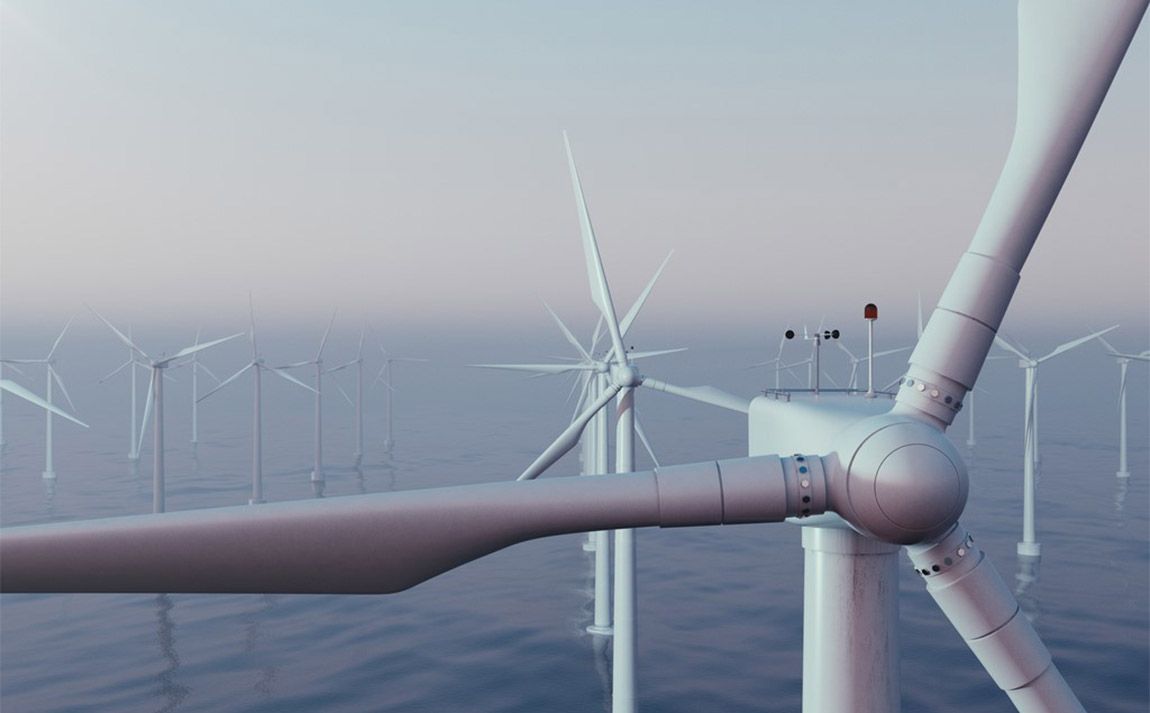
UK to Have Cheapest Electricity in Europe as Government Reveals New Renewable Energy Plan
Posted 30/03/2023 09:57
A new plan to cut greenhouse gases and lower energy costs by investing in renewable energy and nuclear is being unveiled by the government.
Ministers say they want the UK to have the cheapest electricity in Europe by 2035, but admit the strategy is unlikely to bring down bills next year.
The Net Zero plan has numerous measures to cut emissions including announcing the first carbon capture sites.
But Labour said the plans were a "rehash" with no new investment.
Some experts welcomed the focus on UK renewable energy projects, but others said it was "a missed opportunity" and there was no significant boost for home insulation funding.
The strategy - called Powering Up Britain - is largely focused on increasing UK clean energy - wind, solar and nuclear - which it is hoped will drive down emissions but also reduce energy costs.
Prime Minister Rishi Sunak said: "When global energy supplies are disrupted and weaponised by the likes of Putin, we have seen household bills soar. We are stepping up to ensure our energy security in the long term so we can drive down energy prices."
Energy Security Secretary Grant Shapps said the proposals, published on Thursday, would change the way people are billed which would cut electricity prices in the long term.
There are dozens of measures in the plan, which runs to 1,000 pages, covering energy efficiency in domestic properties to large infrastructure projects. They include:
- Rebranding of the ECO+ scheme to the Great British Insulation Scheme, to help insulate 300,000 of the poorest performing homes
- Confirmation of £240m funding for green hydrogen projects
- Confirmed launch of Great British Nuclear to support the growth of the nuclear industry
- More flexibility in planning for onshore wind and accelerated planning for offshore wind and solar
It also contains a detailed outline of how the UK will achieve its climate targets, after the High Court ruled last July that the original net zero plan was not detailed enough to show how the UK would reduce its emissions.
But Labour and experts have said that most of these measures have already been announced.
Shadow climate secretary Ed Miliband said: "What was billed with huge hype as the government's "green day" turns out to be a weak and feeble groundhog day of re-announcements, reheated policy, and no new investment."
The government has announced, as part of the plan, the first sites for storing captured carbon. The three sites in Teesside will remove CO2, produced during the burning of fossil fuels like gas and store them under the North Sea.
But Bob Ward, policy director at the Grantham Research Institute on Climate Change at LSE, said the government should only be using carbon capture and storage (CCS) for emissions already released. He said: "What does not make sense is to carry on with further development of new fossil fuel reserves on the assumption CCS will be available to mop up all the additional emissions."
A world first hydrogen powered, zero emission double-decker bus is pictured in Ellon in Aberdeenshire, Scotland on November 5, 2020. - Scotland is the first country in the world to introduce hydrogen powered double-decker buses. The project is a joint venture between transport provider First Group and the Aberdeen City Council.
Hydrogen could be used for large vehicles, some energy needs and manufacturing materials like steel
Campaigners are frustrated that it appears there is no significant increase in funding for home insulation. It is one of the most effective ways to reduce wasteful heat loss, which increases bills and emissions.
Last year the UK Committee on Climate Change (CCC) - the government's independent advisers on climate change - said there was a "shocking gap" in policy for better insulated homes, and were expecting the government to respond to those concerns in this report.
Dr Paul Balcombe, senior lecturer in chemical engineering and renewable energy at Queen Mary University of London, said: "Investing in new low carbon energy infrastructure is great, but the most sustainable way to be low carbon and increase security is to reduce our energy demand: the stated intention of insulating 300,000 out of [more than] 20 million homes is clearly insufficient when we have such a poorly insulated housing stock."
Mike Childs, head of policy at campaign group Friends of the Earth said the environmental campaign group took legal action against the government's previous net zero strategy "because it failed to show how legally binding climate targets would be met".
"With these policies looking dangerously lacklustre and lacking on climate action, we will be combing through the detail of the amended strategy and are poised to act if ministers have fallen short once again", he added.
Energy companies also said the strategy was a missed opportunity to address some of the issues with connecting new renewable energy to the power grid.
Lucy Yu, CEO of the Centre for Net Zero, a think tank owned by Octopus Energy, told the BBC: "Speeding up the planning process for new renewable energy developments is welcome, but it has to be accompanied by reforms that make it easier, faster and cheaper to get a grid connection."
Without proper insulation homes lose heat - increasing bills and emissions
Updated measures include a three-year extension to 2028 to a scheme offering households £5,000 to replace their gas boilers with heat pumps.
A Lords enquiry recently described the heat pump scheme as "seriously failing", after initial figures showed low take-up of the grant by households. But it is hoped that a new marketing campaign will help dispel some of the worries around their installation.
Keeping energy bills low for consumers is a key ambition of this strategy. The government has said it recognises one of the main ways to bring down bills is by increasing renewable energy but also by "decoupling" electricity from gas prices.
At the moment the UK still needs natural gas to meet its demand, so its generators, which charge the highest prices, set the electricity cost.
How the government achieves this is not yet clear - it said it would make no announcements at this time but were looking at different measures. It has proposed to move the existing "green levies" on electricity prices over to gas prices so as not to penalise households for using electricity, which is greener.
More announcements are expected to be made on Thursday including on new investment into offshore wind energy.








